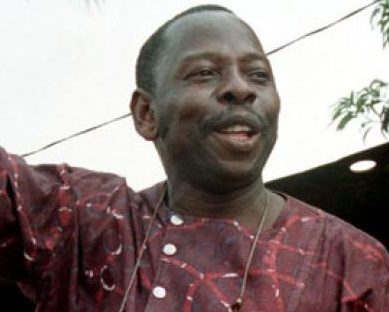The Movement for the Survival of the Ogoni People (MOSOP) has lauded President Bola Tinubu’s decision to grant a posthumous pardon to the nine Ogoni activists unjustly executed in 1995 under the oppressive regime of the late General Sani Abacha. This momentous decision, announced during Tinubu’s Democracy Day address at the National Assembly, has been hailed by MOSOP as a significant stride towards achieving justice and facilitating national healing. The pardoned activists, Ken Saro-Wiwa, Nubari Kiobel, Nordu Eawo, Saturday Doobee, John Kpuinen, Paul Levura, Daniel Gbokoo, Felix Nuate, and Baribor Bera, collectively known as the Ogoni Nine, were prominent figures in the struggle for environmental justice and the rights of the Ogoni people in the Niger Delta region. Their execution sparked international condemnation and became a symbol of the brutal suppression of dissent during Abacha’s military dictatorship. MOSOP President, Fegalo Nsuke, characterized Tinubu’s action as a courageous and historic step, emphasizing the President’s demonstrated willingness to address the grievances of marginalized communities.
While expressing gratitude for the pardon, MOSOP maintains that the inherent implication of a pardon – the acknowledgment of guilt requiring forgiveness – contradicts their unwavering belief in the innocence of the Ogoni Nine. They argue that the activists were victims of a flawed judicial process orchestrated by a repressive regime, and their execution was a gross miscarriage of justice. The charges against them, related to the murder of four Ogoni chiefs, were widely believed to be fabricated and politically motivated, aimed at silencing their vocal opposition to the environmental degradation caused by oil exploration in their homeland. The trial, conducted by a special military tribunal, was marred by numerous irregularities and lacked due process, prompting international human rights organizations to denounce the proceedings and call for their release.
MOSOP contends that a simple pardon, while a positive gesture, fails to fully address the historical injustice inflicted upon the Ogoni Nine and their families. They argue that the pardon perpetuates the narrative of guilt, albeit forgiven, and does not fully restore the reputations of these activists who dedicated their lives to fighting for the rights of their people. To achieve true restorative justice, MOSOP urges President Tinubu to take further action by establishing a Judicial Commission of Inquiry to thoroughly review the case, formally nullify the convictions, and exonerate the Ogoni Nine. This, they believe, would be a more powerful act of redress, clearing their names of the stigma associated with the unjust convictions and ensuring their legacy as champions of human rights and environmental justice.
The establishment of a Judicial Commission of Inquiry, according to MOSOP, would serve several vital purposes. First, it would provide a platform for a comprehensive and impartial investigation into the circumstances surrounding the arrest, trial, and execution of the Ogoni Nine. This investigation would delve into the evidence presented against them, examine the procedural irregularities of the military tribunal, and assess the political motivations behind the case. Second, it would offer an opportunity for the families of the Ogoni Nine and the wider Ogoni community to present their perspectives and contribute to the historical record. This participatory process would be crucial for healing the deep wounds inflicted by the injustice and fostering reconciliation. Finally, the commission’s findings and recommendations would provide a basis for concrete actions to prevent similar injustices from occurring in the future.
By formally nullifying the convictions, the Judicial Commission of Inquiry would not only exonerate the Ogoni Nine but also send a strong message that Nigeria is committed to upholding the rule of law and respecting human rights. This action would demonstrate the government’s willingness to confront past injustices and take meaningful steps to address the grievances of marginalized communities. Moreover, it would contribute to national reconciliation by acknowledging the suffering of the Ogoni people and demonstrating a commitment to healing the wounds of the past. Such a decisive step would solidify President Tinubu’s legacy as a leader who not only possesses courage but also a deep sense of conscience and commitment to justice.
In conclusion, while MOSOP appreciates President Tinubu’s decision to grant a posthumous pardon to the Ogoni Nine, they believe that true restorative justice requires more than a symbolic gesture. They advocate for the establishment of a Judicial Commission of Inquiry to thoroughly investigate the case, formally nullify the convictions, and exonerate the activists. This action would not only restore the reputations of the Ogoni Nine but also contribute to national healing, strengthen the rule of law, and send a powerful message that Nigeria is committed to upholding human rights and addressing past injustices. This would truly cement President Tinubu’s legacy as a leader of both courage and conscience.


